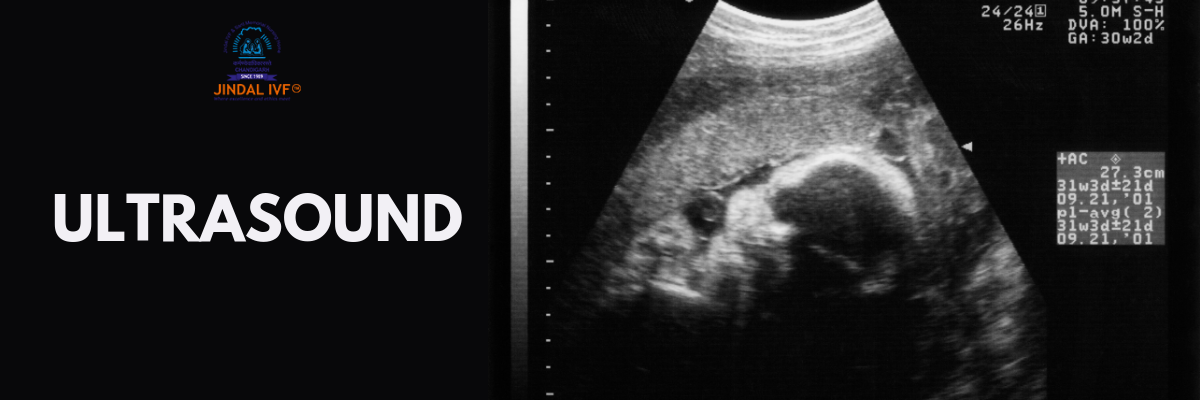
Ultrasound
- Ultrasound is a prenatal diagnostic evaluation offered to all pregnant women.
- It uses sound waves to show a basic outline of your baby inside the womb itself, which is indeed a special moment, as it’s the singular time ‘mom to be’ to gets “see” her baby.
- Ultrasound has become a regular and important part of prenatal care, so here is a summary of important scans that are done routinely to monitor pregnancy in most of the patients.
1. DATING SCAN (At 6-8 weeks) –
- To check viability (whether the baby is alive and is at right position in the womb).
- Estimates due date.
- To determine the number of babies (more pertinent in IVF conceived patients)
2. GENETIC SCAN (At 11-13 weeks)
- Nasal bone and Nuchal translucency (NB/NT) scan
- This is a special scan that gives important information on the baby’s chances of harbouring a genetic defect and also chances of developing other structural problems in various organs of body in further life.
- If this scan is found abnormal,it warrants extensive further evaluation with blood tests like NIPT or invasive tests like amniocentesis to conrm the suspicions.
3. ANOMALY SCAN (17-19 weeks) –
- This is one of the most important USG during pregnancy, which aims to check the baby critically, with great precision for various structural problems in almost all the body parts.
- It requires a lot of expertise and still may not be able to pick all the problems because of inherent limitation of the ultrasound itself. Also, some problems arise later in gestation so cannot be picked so early. However, in the hands of an expert sonologist, it is very informative.
4. GROWTH SCAN – (27-30 weeks & 34-36 weeks)
- To check for the growth of the baby and estimation of the fetal weight.
- To check for Placenta and umbilical cord.
- Water level around baby.
- Any structural problem in various body parts of the baby
- Blood flow to the baby.
- Apart from these important scans, there are a few more tests which help in diagnosis of various chromosomal and structural problems in the baby.
DUAL TEST
- A Simple blood test where the mother’s blood is analyzed for various markers.
- Levels of these markers along with genetic scan report generate a risk ratio which helps in predicting various chromosomal problems like Down’s Syndrome.
- It is not confirmatory, it only predicts the probable risk and thus aids in guiding the need for further evaluation for genetic problems.
MYTHS AND FACTS
1. Ultrasound is a safe test for both mother and baby, even if repeated frequently. No practitioner would willingly put your baby in a compromised state during this pleasant journey of pregnancy. So trust your doctor who advises you to opt for additional scans apart from the ones mentioned above.
2. Frequent scans are needed in cases of previous bad obstetric history, uterine problems like broids and in case poor or excessive growth of the baby.
3. Few scans are done via the vaginal route. These give better image quality in early pregnancy. The vaginal probe doesn’t injure the baby.
4. Ultrasound is a wonderful and very useful diagnostic test, but it is important to understand that the structural or chromosomal problems in the baby can never be completely ruled out.
5. Restricted visibility due to the position of baby or obesity of mother or in twins can necessitate a repeat scan or longer time to evaluate the baby.
6. Invasive tests, like amniocentesis, may be deemed necessary by your doctor in some cases. In expert hands, these are quite safe.
7. Sex testing is not done in India as it is strictly prohibited by law.
Have questions related to your Pregnancy? Ask our Experts Now!



